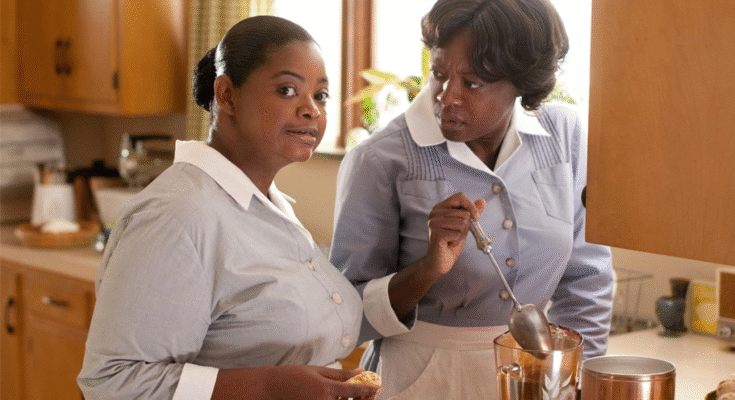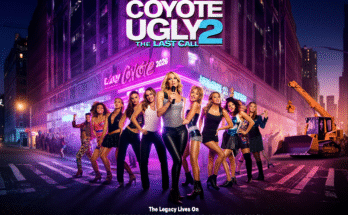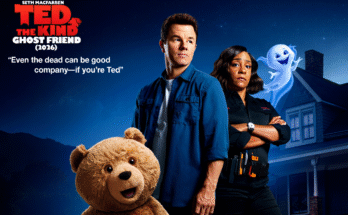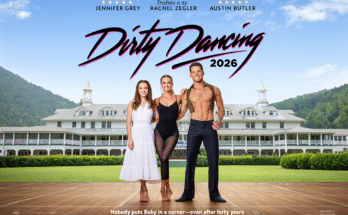When The Help first arrived in 2011, it became more than a film — it was a cultural conversation, a reckoning with the silences of the past and the unspoken courage of women who carried the weight of truth. Fourteen years later, The Help 2 does something daring: it refuses to let that conversation end. Directed again by Tate Taylor and written alongside Kathryn Stockett, the sequel asks a haunting question — what happens after the truth is told?

The film opens not in the kitchens of Jackson but in the simmering heart of a new America. The civil rights movement has shaken the nation, but the battle for justice is far from over. Skeeter (Emma Stone), now an established journalist, returns to Mississippi with her pen sharpened by experience and her voice steadied by the battles of the past. She is no longer the young woman searching for a purpose; she is a woman who knows that words have power — and that silence can kill.
Viola Davis, once again stepping into the shoes of Aibileen Clark, commands the screen with a quiet, devastating strength. Years may have passed, but the grief of loss and the weight of memory remain etched in her eyes. Davis gives Aibileen a presence that feels both weary and unbreakable, a woman who has seen too much but refuses to bend to injustice. Her reunion with Skeeter is not warm nostalgia, but a cautious, necessary rekindling — a reminder that friendship forged in struggle must confront the wounds time has not healed.

Then there is Minny, played once again with fiery brilliance by Octavia Spencer. If Aibileen is the heart of the film, Minny is its voice — raw, unfiltered, and unwilling to let hypocrisy hide behind polite smiles. Spencer’s performance crackles with the energy of a woman who has grown bolder with age, her defiance now sharpened by wisdom. She is not just a survivor but a fighter who demands to be heard, and her presence electrifies every frame.
Thematically, The Help 2 is about echoes — the echoes of old injustices reverberating into new generations, the echoes of voices once silenced now finding heirs in the young activists of the 1970s. Taylor wisely resists the temptation of easy sentiment. Instead, the film examines how progress is neither linear nor guaranteed. For every victory, there are new battles. For every story told, there is resistance to hearing it.
The film’s structure mirrors this tension. Just as the original interwove personal stories with the broader movement, The Help 2 shifts between the intimate and the monumental. Kitchen tables, church basements, and whispered confidences collide with marches, protests, and the roar of change echoing through city streets. The contrast gives the film a pulse that is both personal and historical, reminding us that history is always lived through ordinary lives.

Visually, the film leans into atmosphere — the faded elegance of Southern homes, the starkness of segregated spaces, the hopeful brightness of rallies swelling with voices. There’s a deliberate choice to show Mississippi not as a static relic of the past, but as a place wrestling with transformation, its landscapes as conflicted as its people.
But where the film truly lands its emotional force is in its exploration of truth as a weapon. Skeeter’s new work, Aibileen’s reflections, and Minny’s unyielding candor converge to remind us that telling the truth is not safe, not comfortable, but necessary. Truth divides. Truth exposes. Truth wounds. And yet, as The Help 2 argues, truth is also the only thing that can truly set people free.
By its final act, the film does not pretend that all wounds are healed or all battles won. Instead, it leaves us with something more honest — the recognition that the work of justice is unending, that every generation must take up the pen, the voice, the march. It is not closure the film offers, but continuity.

The performances anchor this honesty. Davis, Stone, and Spencer create a trio that is nothing short of magnetic, their chemistry as rich as it was in the original, but now matured by years of struggle and sacrifice. They embody the film’s central truth: that friendship, when built on courage, can endure not just time but history itself.
Ultimately, The Help 2 is not just a sequel. It is a reflection — on the stories we tell, the silences we break, and the battles still left to fight. It dares to say what few sequels do: the story wasn’t finished, because the struggle isn’t finished. And as the credits roll, you can’t help but feel the weight of that truth pressing forward into our own time.
⭐ Score: 9/10 — Stirring, unflinching, and deeply human. A sequel that doesn’t just revisit history but insists it’s still alive.



